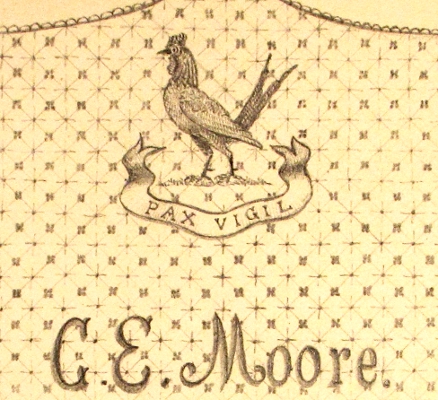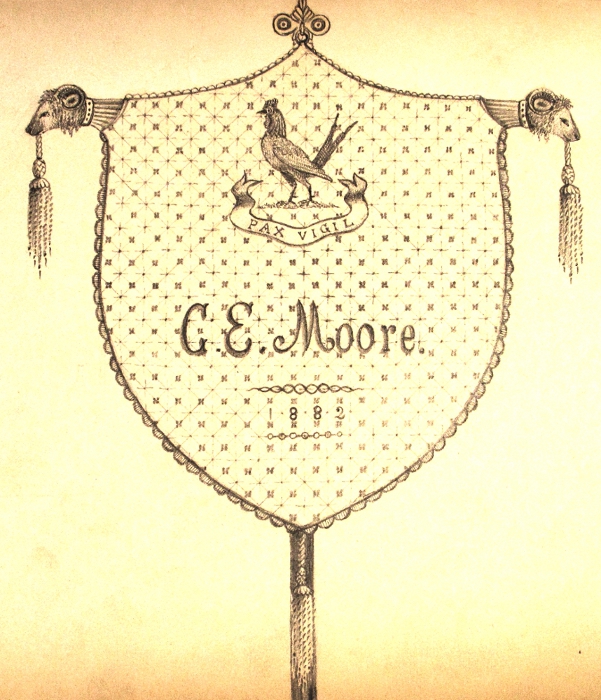Introducing GE Moore
GE Moore was famous during his lifetime for his book Principia Ethica (1903), a founding text of analytic philosophy.
Those familiar with Moore only through the dry pages of the Principia Ethica might be surprised to discover he was a convivial man whose amiable nature, kindness, and intellectual rigour won him many friends.
GE Moore and his wife Dorothy sent and received thousands of letters, many of which they kept, and later deposited at Cambridge (Moore’s papers can now be found Manuscripts Reading Room at MS Add.8330). The Moores’ correspondence contains surprising details about the personal lives of thinkers and artists, many of them famous.
The Bloomsbury group, many of whose members Moore counted among his friends and correspondents, were strongly influenced by the lofty ideals presented in the concluding chapter of Principia Ethica. As Professor Tom Baldwin writes, “Moore’s choice of values is striking: it connects with the ‘Bloomsbury’ ideal of life devoted to Art and Love, and excludes social values such as equality and freedom … As Keynes put it, Moore’s ideal was a kind of secular ‘religion’ – not much use for public policy but fine for talented individuals who could agree to differ in their detailed value judgments.”1
Naturally Moore’s friends also included a number of philosophers, perhaps most notably Ludwig Wittgenstein, whose stormy temperament Moore found difficult. Wittgenstein was well-known for belittling and berating others (including his postgraduate philosophy professors: Moore and Bertrand Russell). However, Wittgenstein’s letters to Moore tend to take a fond tone, even when he’s so enraged with Moore that his handwriting becomes nearly illegible, as in a grumpy letter to Moore from 1914 (found at Add.8330 8W/32/10). Despite their oddly matched ideas and temperaments, the Wittgenstein and Moore enjoyed a lifelong friendship.
Moore also enjoyed a warm relationship with his family. The image featured above and below was drawn for nine-year-old GE Moore by his father Daniel. (What did Moore do to merit this? Was he perhaps his father’s favourite?) It appears on the first page of the family sketchbook (MS Add.8330 7/6). Daniel was a practicing physician, but he also had a talent for drawing and produced a number of landscapes in the sketchbook. There are also childhood drawings by GE Moore’s brother, Thomas Sturge Moore, an artist and poet best known for illustrations to the covers of Yeats’ poetry books. Moore’s brother Bertie (Joseph Herbert Moore) was also an artist. One of Bertie’s drawings in the family sketchbooks shows GE Moore laughing uproariously, with a beer glass in one hand and a cigar in the other (quite a contrast to Moore’s dour expression in official photographs). Moore is subject to a little teasing from Bertie, who writes above the drawing, “You are getting fat!”
Today Principia Ethica is considerably more obscure than it was during Moore’s lifetime. Moore’s presentation of analytic philosophy is of declining interest, but Moore’s life remains an intriguing subject. It’s difficult not to find interesting a man who presented a philosophical argument for common sense that begins, “Here is one hand.”
Moore’s extensive collection of papers may be viewed in the Manuscripts Reading Room under classification marks MS Add.8330 (personal papers) and MS Add.8875 (professional papers).
Notes
1Quoted from George Edward Moore, accessed 2 March 2013 at 9.49 AM. Go Back


